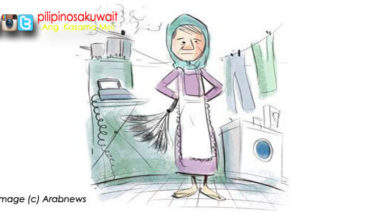MANILA, Philippines – The Department of Migrant Workers announced on Thursday, December 5 that Saudi Arabia now accepts job orders from the Philippines in order to hire residential support workers, which are helpers who no longer have to live with their employer.
The DMW issued Memorandum Circular No. The DMW released Memorandum Circular No.
“Ang residential support worker ay hindi maninirahan, hindi titira sa kanilang employer na pinagsisilbihan at sila rin ay magkakaroon ng sitwasyon na various employers, hindi isa lamang ang kanilang employers,” DMW Undersecretary Felicitas Bay said in a press conference.
The residential support worker does not work for the same employer and will not live there.
Bay explained that residential workers will not be taking care of the children and will instead focus on cleaning the household.
According to DMW, interested overseas Filipino workers will be able to contact mega recruitment companies directly. The recruitment agency will take care of their accommodation.
A key difference between a residential support worker and a domestic worker is that they do not have the same visa.
Instead of a domestic worker’s visa, residential support workers will be issued a visa for skill or labor.
OFWs who are employed as residential support workers in Saudi Arabia will receive a monthly salary of SAR 1,800, or approximately P27,790.65. They will also receive an additional SAR 500, or roughly P7,719.62.
Residential support workers are entitled to overtime pay of 150% the basic hourly wage for work performed beyond the regular working hours.
Residential support workers receive 200% of their salary for working on rest days and holidays.
Residential support workers must rest at least 24 hours per week. They must also receive 21 days of paid annual vacation leave.
According to Saudi Arabian labor law, workers have a right to a return ticket every two years to their place of origin.
OFW residential support staff will also receive free transportation back to their home country in the event of contract completion, termination by the employer without cause, force majeure and inability to continue working due to illness or injuries.
DMW Secretary Hans Leo Cacdac stated that this development was to diversify the type of work available to OFWs.
Cacdac said, “Especially those who will protect our female OFWs,” he said.
In August, two OFWs who died in Saudi Arabia were reported. The families of two OFWs asked the government for help in investigating their deaths. Both OFWs allegedly suffered mistreatment by their respective employers.











